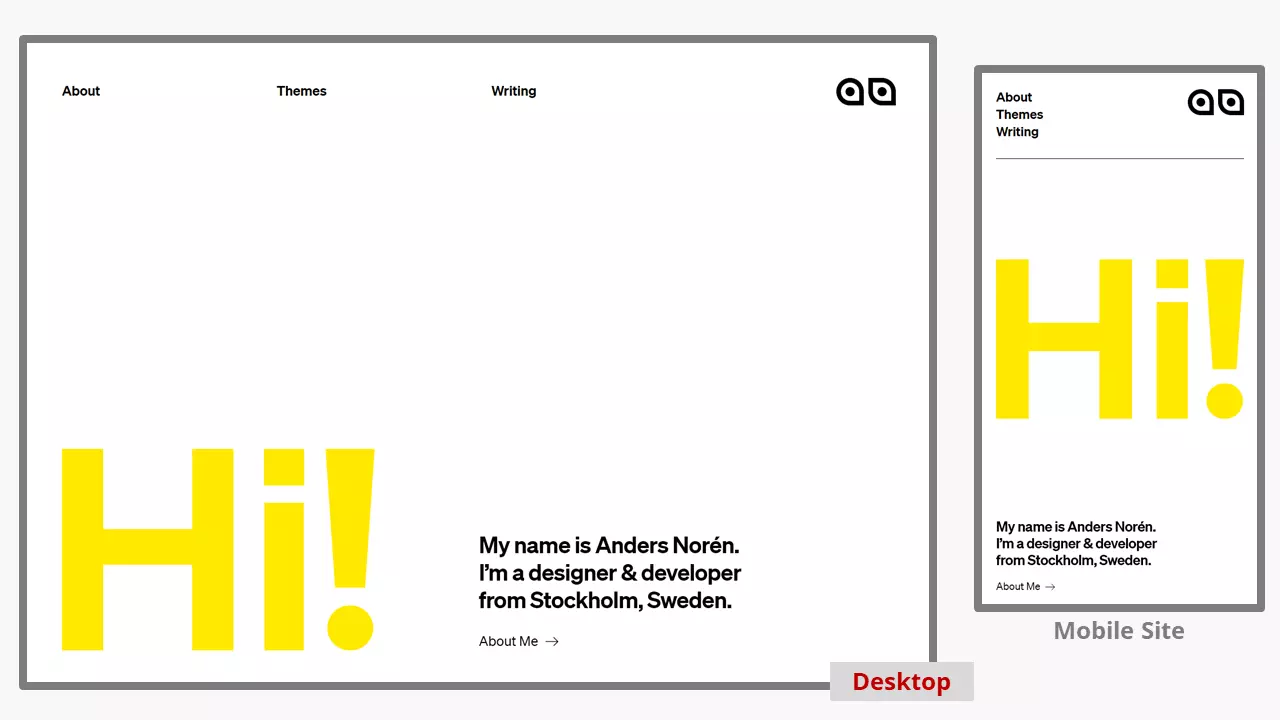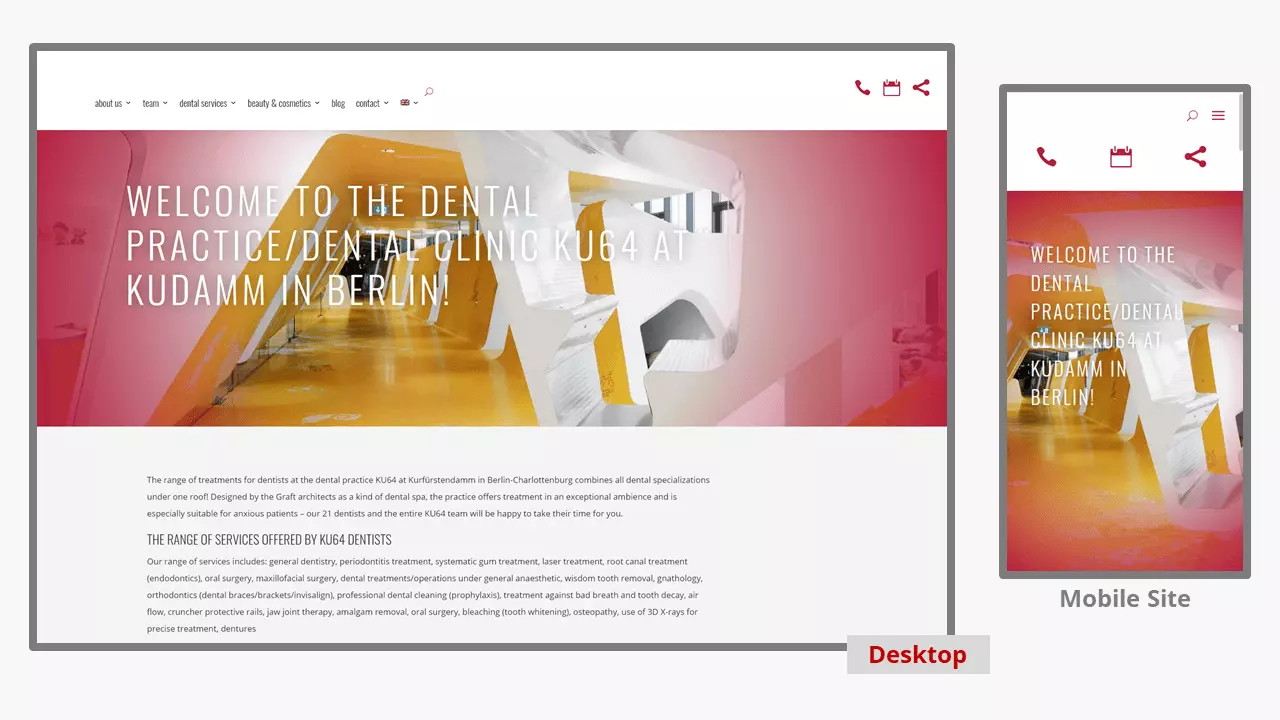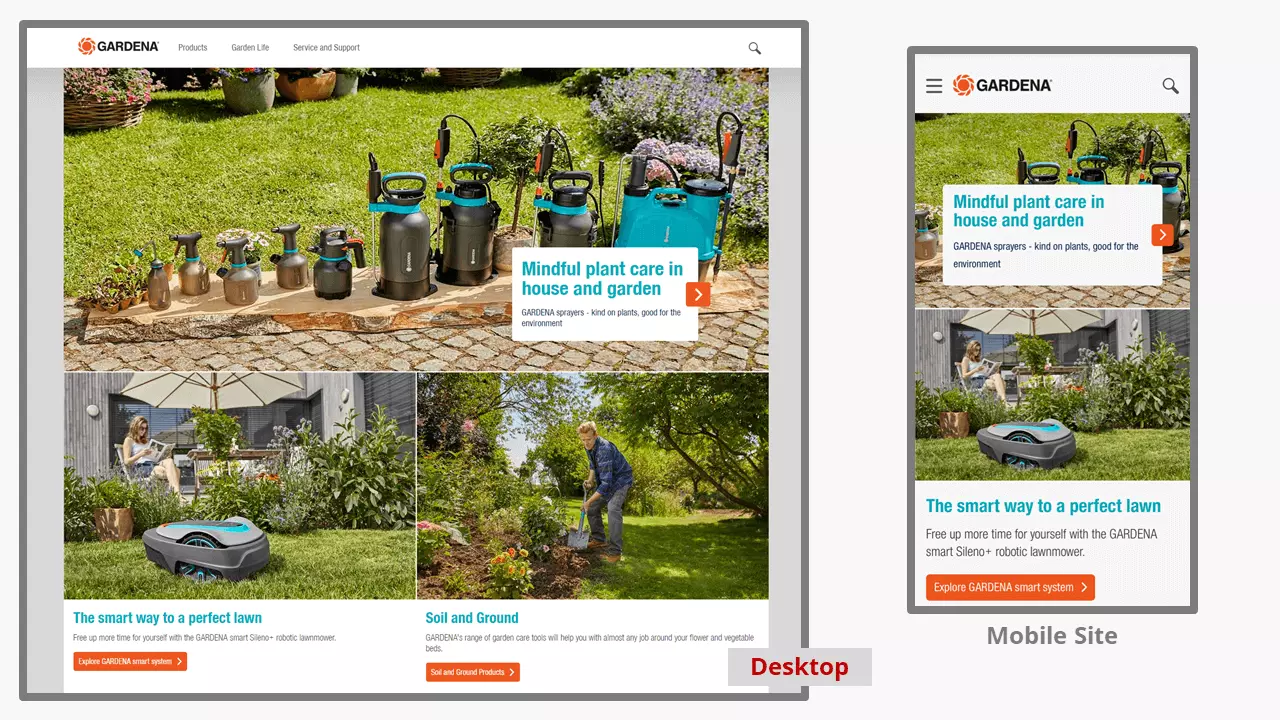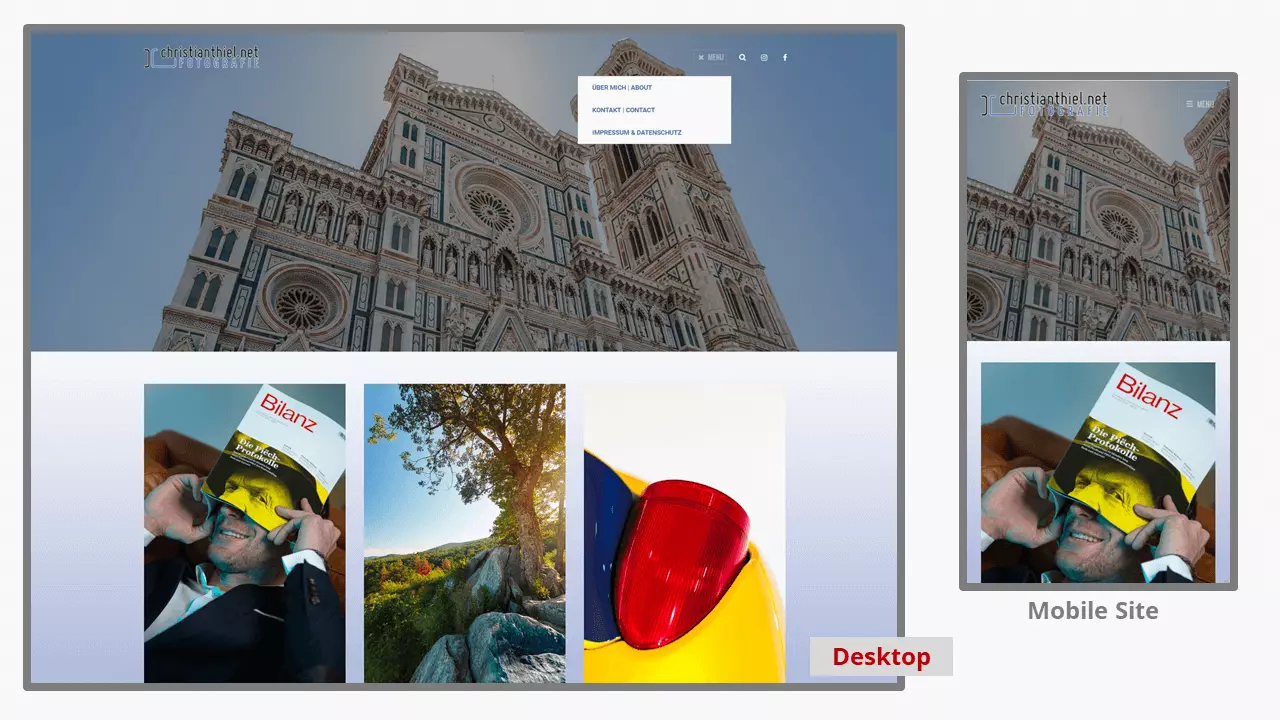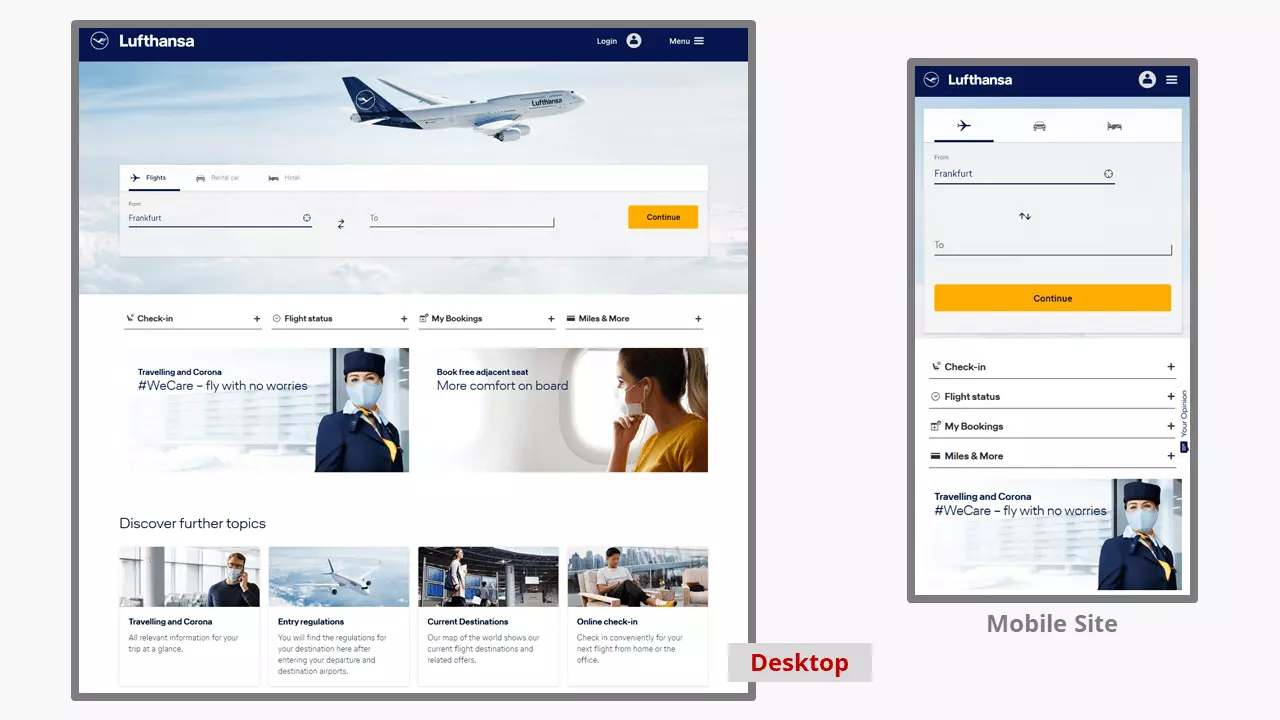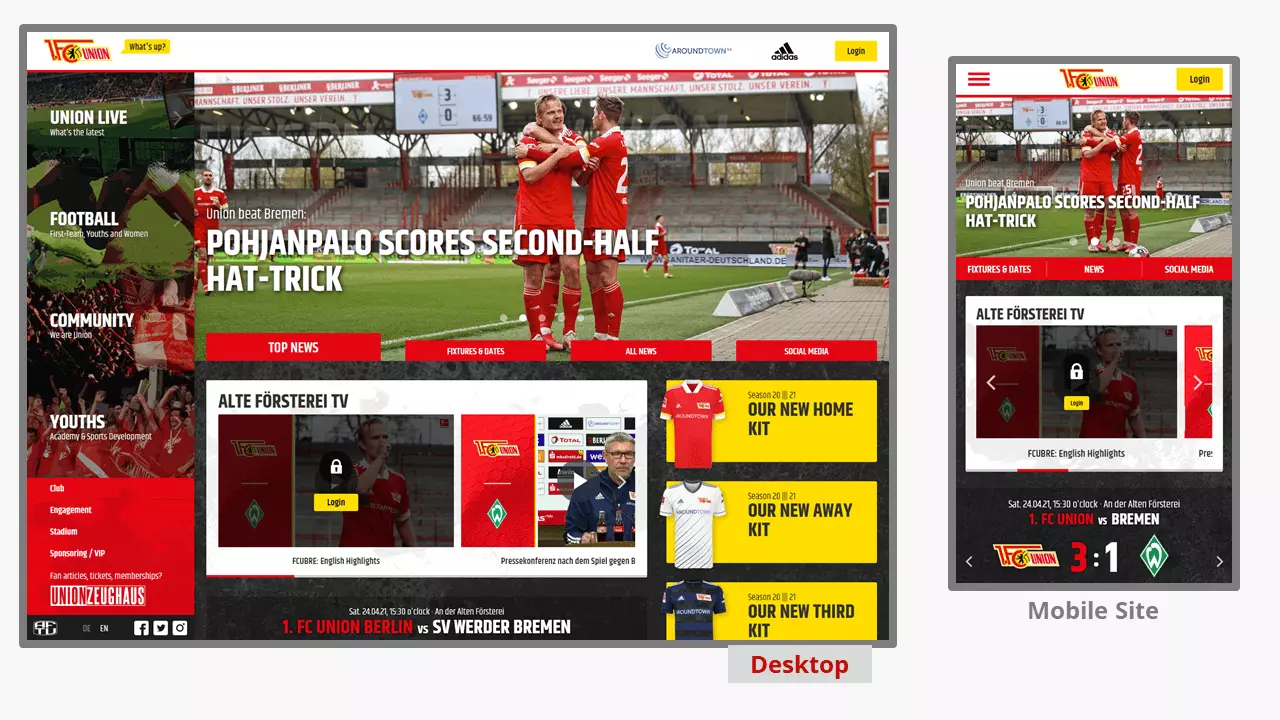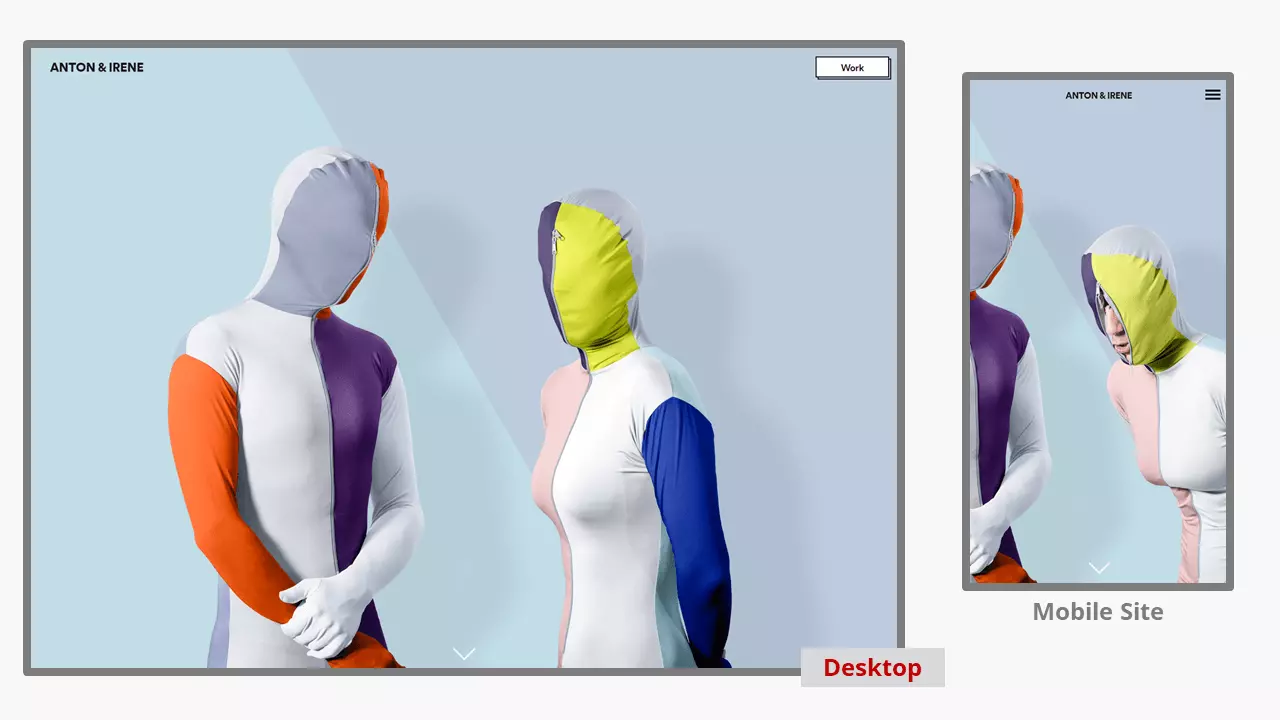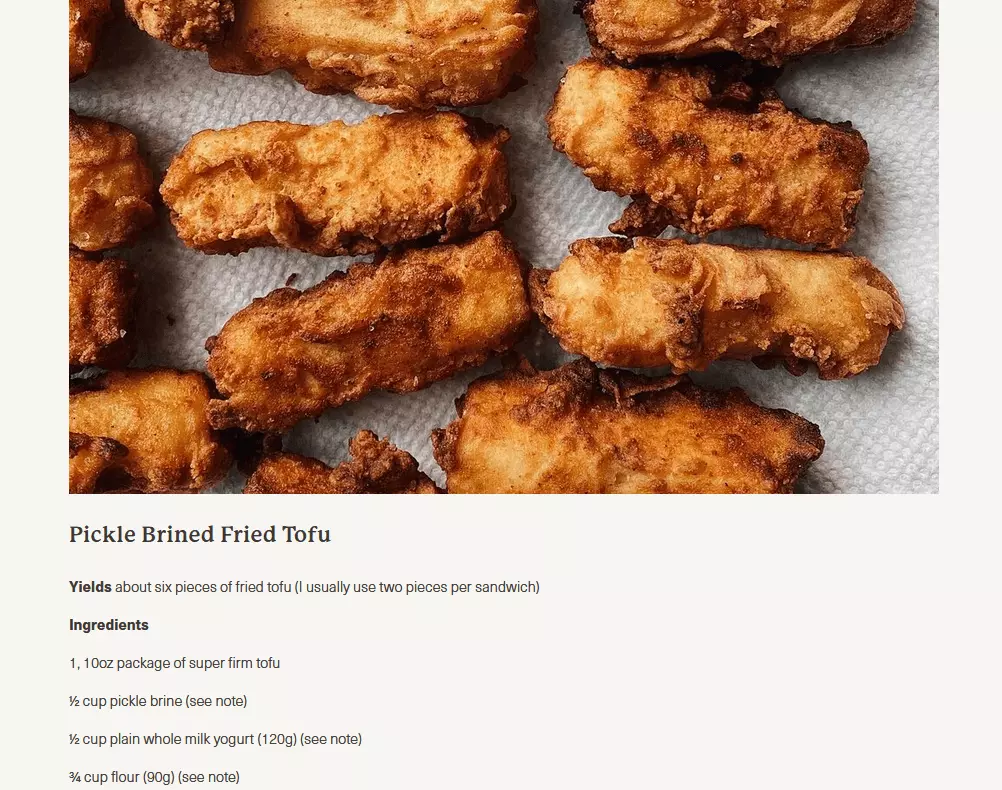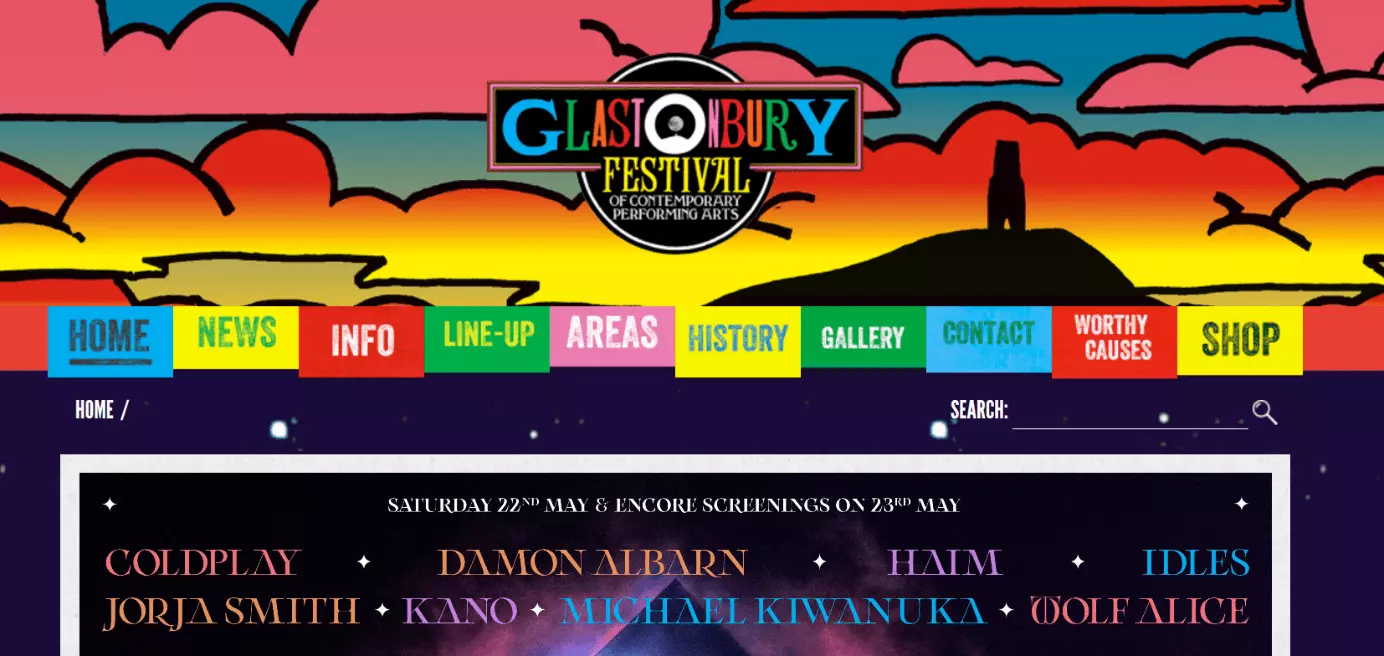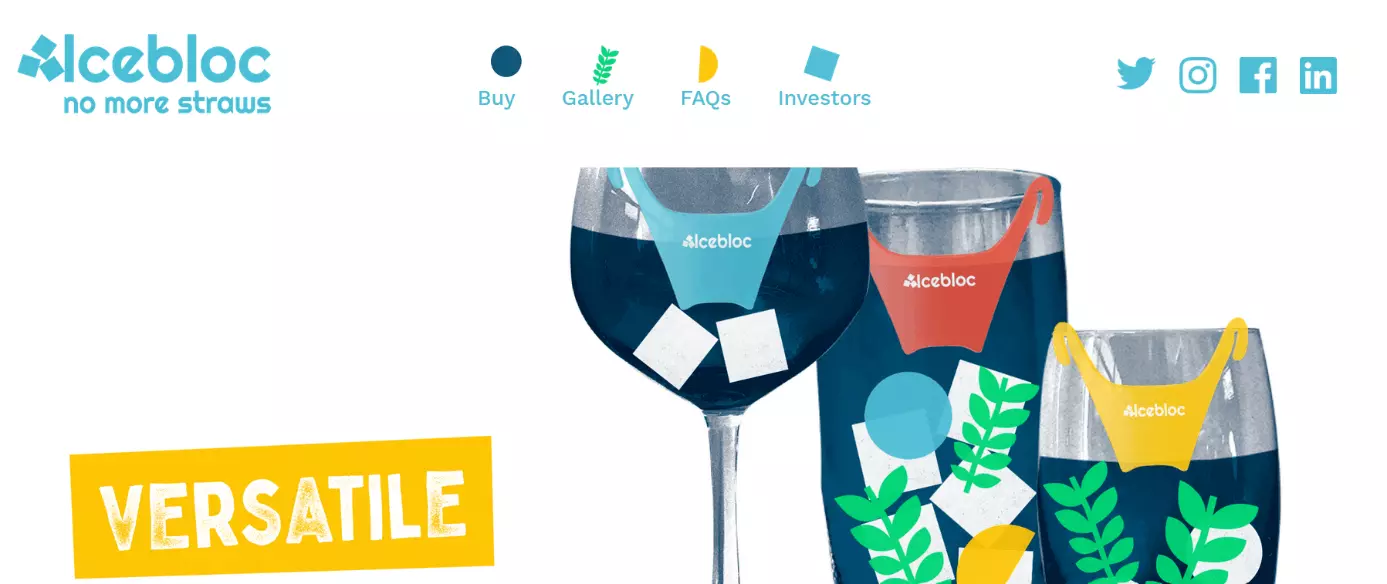Website ideas - How to find them
Big glasses, bags under eyes, a pot of coffee? The assumption that only nerds build (and maintain) websites can probably now be categorised as a ‘rumour’. Because it’s actually not that difficult to turn an idea into a website on the world wide web. But before getting started, there are some important considerations that you shouldn’t overlook. In this article you’ll learn what makes a good website, what you need to put your idea into practice, and what design options exist. Get inspired with our examples and website idea for beginners!
- Free website protection with SSL Wildcard included
- Free private registration for greater privacy
- Free 2 GB email account
What do you need to put your website ideas into practice?
You have probably chosen a suitable name for your business. You will also need a name for your website: the internet address or domain. It’s best to choose the domain before getting to work with your website ideas.
Further on, we’ll show you some examples that are based on different platforms or design principles. Think about which website type is best suited to your idea.
Based on the type of website, you can usually also find out what kind of web hosting service you need. Important factors include performance (loading speed) and sufficient storage space, but the software can also play a role, for example, special hosting for WordPress or online shop software such as Magento. In the following sections, we’ll take a closer look at the three main ingredients: domain, website type, and web hosting.
Finding a domain name for your website
Your company name is a good starting point for creating a domain name. But you might also want to operate your online shop under your own brand name, for example.
Brainstorming different options has proven to be a good idea, preferably in the classic way à la pen on paper. The name ‘peters-carpentry.tld’ is just as clear in its intent as ‘weddingphotographer-david.tld’. It could be that your desired name is already taken, so you have to think further: ‘peter-your-carpenter.tld’ has a more personal touch, while ‘davids-wedding-photos.tld’ can easily mislead. If desired domains are already taken, choosing an alternative domain extension (top-level domain) will help. With still quite new top-level domains like .shop, .sales, .fun, or .holiday for example, good descriptive domain names can be created.
Once you’ve found a name you like, it’s best to talk to a few people you trust about it. This feedback will help you minimise errors and mistakes. Also find out about the basics of trademark law to avoid infringement.
Register your dream domain with IONOS in just a few clicks.
Deciding on a website type for your website idea
You should also adapt your business model to the type of website you choose to go with. Imagine your potential website visitors watching you at work or stopping in front of the window of your shop. Whether you want to sell physical or digital products online, report on a special topic on a blog you created yourself, or showcase your art, this will set the tone. To implement your website ideas, you can start off with some already well-established website types:
- Corporate website: presents your business
- Portfolio: present yourself as a creative freelancer or services provider
- Microsite: a one-off site to inform readers about a specific topic
- Landing page: leads to a registration, purchase, or similar action
- Online shop: sells products or services
- Blog/magazine: regularly updated published editorial content
- Web app: provides an application for bookings or reservations, for example
These types are also often combined, depending on the scope of a website, so it’s not easy to designate a specific use to the website. For example, you can start with a corporate website or portfolio, add an online shop to it later, and use microsites and landing pages to support specific sales campaigns. If you offer appointments for services, you can integrate a booking system with a web app. In a complementary blog or magazine, you can inform readers about the application of your products or share news.
Our in-depth guide introduces the various website types and can help you put your website ideas into practice.
Beyond this, there are also industry-specific recommendations to support your website ideas. Our Digital Guide provides further information for setting up an accountant website, handyman website and artist website. You’ll also find additional links to further industry-specific guides.
The web hosting account
To store all the information in a publicly accessible way, you need storage space that is online around the clock, known as web hosting. This kind of storage space comes with monthly costs. In return, the web hosting providers will cover you with secure, fast, and suitably sized storage space, regular backups, and security systems that protect against hacker attacks.
Many of these web hosting accounts are scalable, meaning they are adaptable to the needs of a growing business. Good providers often provide multiple domains, databases, support for older variants of scripting languages, SSL certificates, and fast transfer protocols. Entry-level rates range from between 3.50 GBP per month to 15 GBP per month for larger projects
Web hosting including a domain and everything else that you need is available with IONOS for as little as £1 per month.
- Intuitive website builder with AI assistance
- Create captivating images and texts in seconds
- Domain, SSL and email included
If you are integrating an online shop then additional costs may arise. Also keep in mind that the providers processing payments charge base prices and per-transaction fees in varying combinations, some of which are revenue-based.
eCommerce solutions from IONOS come with a matching web hosting solution, a domain, and all the features needed for an online shop, including payment and delivery options.
What sets a good website idea apart?
Do you remember the last time you annoyedly clicked away a website? Was the offer not clear enough, not informative enough, or aesthetically displeasing? Did it not meet your expectations? These few characteristics already point to the hurdle that you have to overcome to create the best possible website from the best idea. When is it too much, when is it not enough? If there’s movement on the site, does it need sound or just black-and-white imagery? Even if there are no clear answers, some principles have been established for certain purposes.
Clear structure, clear statements
Just like a business is set up in a certain structure, a website also needs a clear structure that focuses on the essentials. Clarity provides the impression of competence and the ability to focus on what matters in a business. And that’s exactly what visitors expect, whether they visit the website of a pizza delivery service, a photographer, or a tool manufacturer.
Visiting a website should be an experience, the digital showroom of whatever is being offered. This can be compared to the price tag on a piece of clothing: name of the product, size, price, origin, logo on the front, and a product tagline ‘Good things are bought at XYZ’ - done. Clarity, a few ‘gimmicks’, and a hint to where to continue on the page is enough.
Mobile first and mobile only
More and more users go online with their mobile devices. The content of a website must be adapted to this behaviour by means of responsive design. No matter how large (or small) the device, whether it is held upright or in landscape format – the content must be presented simply and, ideally, intuitively. The principle of “mobile-first” should already be considered in the planning phase, when coming up with ideas for a website on a certain topic. This also forces you to consider what the website could forego without compromising the message.
Speaking of ‘mobile only’, Google now goes as far as to index only mobile-friendly websites. To ensure that potential customers find your website, you should bear this in mind with your website ideas.
Following concrete goals
Put yourself in the shoes of your website visitors. What can they expect from your business? How do you need to present yourself so that your message gets across and you reach your goal? Define your goals and then create the content and design based on that.
Are you looking to sell something? Then you should directly address the consumer, with a clear call to action. Or a promise that can be redeemed after a certain action, like “free shipping this week”. In this way, you can catch visitors’ attention, and turn them into customers. When implementing your website ideas, always keep in mind what way your company and brand can provide the most value. Satisfied customers will pass this value on in the form of a recommendation.
Focusing on tried and tested practices and trends
You don’t have to reinvent web design to develop your website ideas: just get an overview of current trends in website design. Our guide to web design trends provides a good overview of where design is currently heading. Look at your competitors and gather inspiring ideas for your own website while you’re at it.
Considering budget
Set up a realistic budget plan: this includes one-time and regular payments associated with setting up and running your own website. The IONOS guide “How much does a website cost” provides a good overview for this.
Get inspired, choose a name for your business, and register your domain name.
- Name suggestions
- Domain check
- For any industry
Inspiration: 15 website ideas
Do you want to launch your own website online, but are lacking ideas? Get inspired with our website ideas for beginners below!
Design portfolio
The website of a freelance media designer or design agency must make a great first impression on visitors. But at the same time, all the information about the company must be easy to find. So, combine short texts with plenty of visuals to bring your best work to the forefront. Special design effects like the parallax scrolling effect can also be used for this. However, make sure that the website performance doesn’t suffer because of it and visitors don’t get lost.
Advisory website
If you are setting up your own coaching website, you are offering interested individuals a first point of contact and the possibility to book appointments. Here you can provide information on what you can offer and have the possibility to introduce yourself. If you’ve made sure to optimise your website for search engines and publish on-theme blog posts on the website, you are sure to quickly find new clients.
Online shop
You don’t have to be a big trader in the domestic and export sector to have a website idea that makes money. Even with a craft hobby like knitting or carving you can earn some extra money with an online shop. If you want to sell homemade things online, feel free to bring in some personality. This will get customers’ attention and make them more likely to consider buying the product. Make sure you present your products clearly with text and images and implement typical payment and dispatch options. Modular solutions like the IONOS eCommerce Website Builder come with important features already included.
Food blog
You’re crazy about food? Showcase your most appealing dishes online. Pep up your recipes with photography and complete meal plans, so that your readers will get hungry just browsing through your site. You can also set up a blog section to chat about memorable restaurant visits or interesting ingredients. To make this kind of website happen, a content management system like WordPress is perfect.
Podcast website
The podcast audio format is getting more and more popular. If you have something to say, you can publish your recording on different online platforms. With your very own website, you can offer a further channel to promote your podcast. You can also upload your audio files and give site visitors the option to listen to your podcast directly on the website. You can also link up a payment function if needed. Beyond this, the website can provide further background information on your work.
Affiliate website
Some online suppliers (like Amazon or Alibaba) offer affiliate marketing. The idea: You write about various products and provide a link to the seller’s website. If a customer purchases one of the products, you get a commission. But make sure to provide authentic reviews or product descriptions, so that you’re providing value to your readers and to make sure they’re actually convinced by the products.
Online documentation
Storytelling with integrated elements. Are you super passionate about a topic or want to inform others about something? Showcase your research findings with good images and matching web design online. A website lets you add snippets of information whenever you like. Write your copy in such a way that readers are excited for the next part of your story. When planning and implementing your ideas, storytelling tools can help.
Restaurant website
If you want to set up your own restaurant website, you offer readers the option to get accustomed to the menu and the ambience. Make sure you are using impressive images that get you excited to visit. Publish your menu: if you are adding new dishes or are offering a weekly special, you can easily update this online. By incorporating a web app, you can even manage online reservations and orders via your website. Consider including a description on how to reach the restaurant, to improve the experience for new guests.
Photography website
If you want to create a photography website, then your work will be the focus. Large-format images presented in an appealing way will leave a lasting impression on website visitors. For this, you can try out different gallery features in your website system, so that users can easily navigate your photography.
Event website
If you regularly host parties, concerts, and other events, then you can set up a corresponding website. In addition to information surrounding the events, the website provides an opportunity to directly purchase tickets. Fans can browse images from past events or can exchange notes with other users in the forum.
Application website
You can use an application website to present yourself to potential employers. Instead of sending out a CV or cover letter in an email, an application website lets you stand out in a sea of applicants. A digital business card, that can be used beyond applications. For example, you can add images, information on your career and work experiences, and design it in a way that it matches the industry you are looking to tap into. Use links to link to your professional profiles in social networks for even more information on you.
Fashion and beauty blog
Do you love fashion and beauty and know all about the latest trends? Let others in on your passion with a blog, which lets you publish articles with images quickly and easily. Write about your favourite clothing items or make up trends, or link to published videos and tutorials on YouTube. For this, it’s best to use a CMS like WordPress, as you don’t need any HTML knowledge to get started.
Product landing page
Landing pages are especially useful for startups that have just launched an innovate idea as they can present it on a landing page. Make sure to focus on the benefits, explain the features, and answer the most important questions. This will allow you to win over both customers and investors. This can also be achieved with a one-pager, which lets interested parties simply stroll through the key facts.
Sports website
Create a web presence for your team. This will let you inform fans about any news on the team and more generally about the sport you’re involved in. Introduce the team members and talk about the history of the team. With a calendar, you can make sure that fans don’t miss out on any important matches or events. Solo sports can also benefit from this kind of website, for example, to get the attention of sponsors.
Online courses
Whether a technical training course or a job application seminar, you can offer online courses on your own website. Inform interested parties about what you can offer, include a schedule, and add a booking feature. It’s also possible to have a members’ area that is only open to paying customers. Here, you can then publish videos and tutorials, as well as online seminars and course materials.
Website ideas to make money: tips and tricks
Now things are getting serious. All the prerequisites are in place to get your website up and running. For the ‘how’ there are many possibilities, which we’ve briefly summarised below.
Solutions for your website ideas
- HTML & CSS: Building your own website with HTML and CSS is pretty unusual nowadays. That’s because there are so many handy resources available. But it can still make sense to learn a bit of HTML.
- Static site generator: A static site generator works locally on a server (or in a cloud) and outputs static single pages in HTML using code scaffolds. For a very simply designed website that mainly exists to provide information, a static site generator can be a good solution. For extensive web projects this approach is not really recommended.
- Web builders: These tools help to bring your own website ideas to life without any prior programming knowledge. With these website buildings, the preliminary work for finished websites including design templates has already been done.
With the website builder MyWebsite from IONOS you can realise your website ideas with little effort and programming know-how. Web hosting, domain, search engine optimisation, and plenty more comes included.
- Content management system: A good toolbox for your website ideas is a tried and tested and professionally-developed content management system (CMS). WordPress has established itself as the frontrunner in the category. Its worldwide community is constantly developing new plugins and themes, with which you can make almost any idea for your website a reality. The simple maintenance of WordPress is a further bonus point for this CMS. All you need is some basic knowledge in text editing and image editing software. Almost all hosting providers also have WordPress hosting packages to offer.
- Stress-free, no matter your skill level with easy AI tools
- Full customisation with themes and plugins
- Hassle-free updates and less admin
Get WordPress hosting for less with IONOS, the perfect foundation for your website ideas. Also available as Managed WordPress if you don’t want to bother with updating the software yourself.
Don’t forget the details!
Experimenting is a lot of fun when implementing ideas for your own website. However, certain mandatory information must not be forgotten in the process. Below is the most important information in a nutshell:
- A legal notice, is something you might consider including on your site, especially if you are selling products or service through your site.
- A privacy policy.
- A cookies notice, to give users the option to decide which cookies they want to accept.
- A terms and conditions section, for example, if you’re running a store.
- Information and instruction obligations for distance sales if you enter contracts with consumers via the Internet, for example, a revocation.
There are various online generators to set up these basics, both for free and as a subscription. However, many website builders usually contain pre-made features.
The best solutions for your website from MyWebsite Now to WordPress are available from IONOS.
The benefits of having your own website
Your own website acts as a sales tool, your digital gallery, your newsroom, or diary, and is open 24/7, 365 days of the year. With the right website ideas and a successful implementation, you can reach your readership, interested individuals, and customers. You have the chance to show off your strengths and to showcase your business model and how it stands out from the competition. If you promote your website, you can reach a huge audience beyond your regional radius and can strengthen your market position.
Especially during the pandemic, when movement is restricted, creating a website can be useful to sell products even if your retail store has to remain closed, or to arrange personalised appointments in order to comply with prescribed regulations. A well-implemented website idea brings new opportunities ‘in house’ which, with skilful user navigation, can turn visitors into returning customers or orders and referrals into new customers. And all this happens across the whole world.



